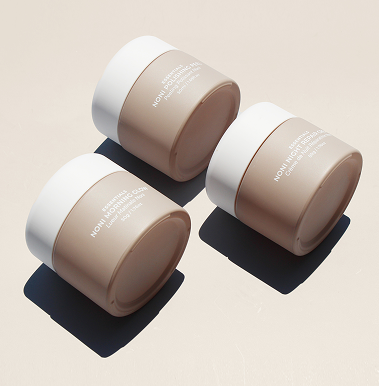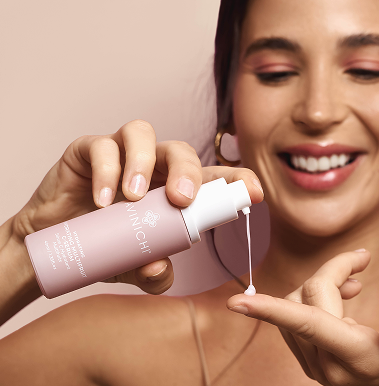Published: July 30, 2025
People are often led to believe that any bacteria residing on the skin is a bad thing, and all traces of bacteria should be cleansed away at every opportunity. This, however, is a huge misconception that could be seriously damaging your skin.
How? It all comes down to the skin microbiome, which plays a key role in keeping your skin healthy. With the majority of that microbiome consisting of bacteria, it can really suffer if your skincare routine involves scrubbing away all bacteria from your skin.
What should you do instead? Read on as Avinichi explains why your skin microbiome is so important, along with how you can encourage it to thrive by feeding the beneficial bacteria on your skin.
The Skin Microbiome Explained
A few years ago, the gut microbiome came into the spotlight. Many people didn’t realize that a whole ecosystem of microorganisms, including lots of bacterial strains, resides in the gut. Well, the same applies to the skin. The skin has its own microbiome, a unique ecosystem that consists of bacteria, fungi, viruses, and even mites!
What does this microbiome do? A number of things, including:
- Works alongside the skin barrier, acting as the skin’s first line of defense against environmental aggressors. The more diverse your skin microbiome is, the healthier and stronger your skin barrier will be.
- Helps to keep skin pH regulated. Again, this helps the skin barrier while also inhibiting the growth of harmful organisms.
- Produces enzymes that help to break down dead skin cells to keep cell turnover optimized.
- Helps to support the immune system. Your skin microbiome trains your immune cells to distinguish between good and bad microbes.
- Influences sebum production. If your skin microbiome is out of whack, your skin may start to produce too much or too little sebum.
When Damage Occurs…
Unfortunately, there’s a lot out there that can damage the skin microbiome, disrupting its delicate balance. From environmental factors, like UV rays and pollution, to antibiotics, a poor diet, and stress, it doesn’t take much to interfere with this precious ecosystem. Even certain skincare products and techniques can cause it harm.
How can you tell if your skin microbiome has been compromised?
You might notice a range of different issues, such as:
- An increase in irritation and sensitivities.
- Inflammation and redness. Inflammatory skin conditions, such as eczema and psoriasis, will also worsen. In fact, many of these conditions are linked to an imbalanced microbiome in the first place.
- Clogged pores, since the skin microbiome won’t be able to shed dead cells at the rate that it should.
- Acne breakouts, due to how an imbalanced microbiome allows acne-causing bacteria to thrive. This is exacerbated by the issue of clogged pores we mentioned above.
- Accelerated skin aging.
- A lack of radiance. An unhealthy microbiome will inhibit your skin’s natural glow.
- Susceptibility to infections.
- Skin wounds take much longer than normal to heal.
How to Care for Your Skin Microbiome
Concerned that your skin microbiome might be crying out for help? Here’s what you need to do to give it the care that it needs:
Opt for a Gentle Cleanser
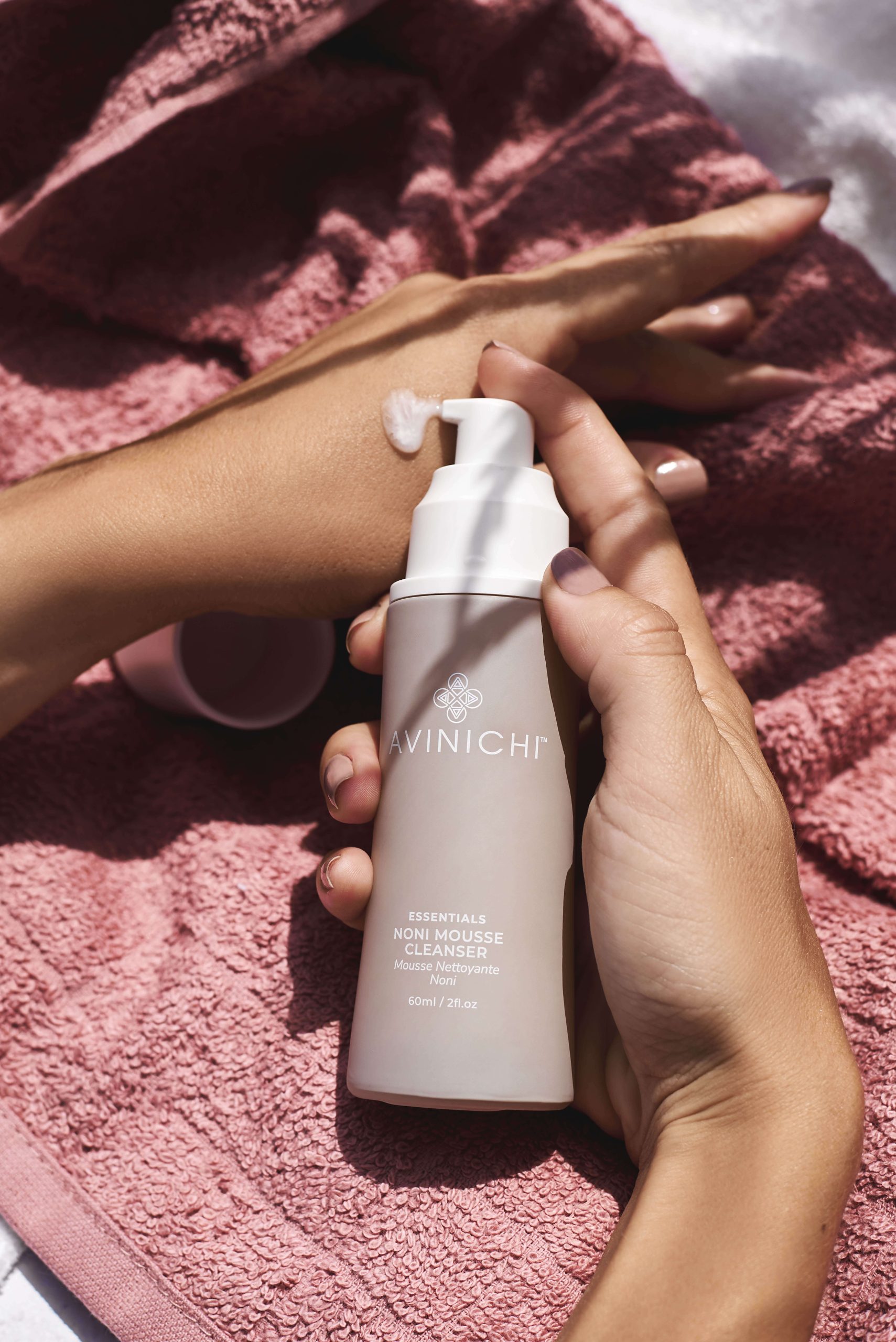
While antibacterial cleansers may seem appealing at first, they don’t discriminate when it comes to the bacteria they destroy. Yes, they’ll remove bad bacteria, but they’ll also clear away the beneficial bacteria that your skin microbiome needs.
To prevent this, stay away from antibacterial skincare products. Other aggressive cleansing ingredients, such as sulfates, should be avoided too. Instead, stick to gentler formulas, like the Avinichi Noni Mousse Cleanser. If you have oily skin that needs some extra cleansing power, give double cleansing a try.
Avoid Disrupting Your Skin’s pH
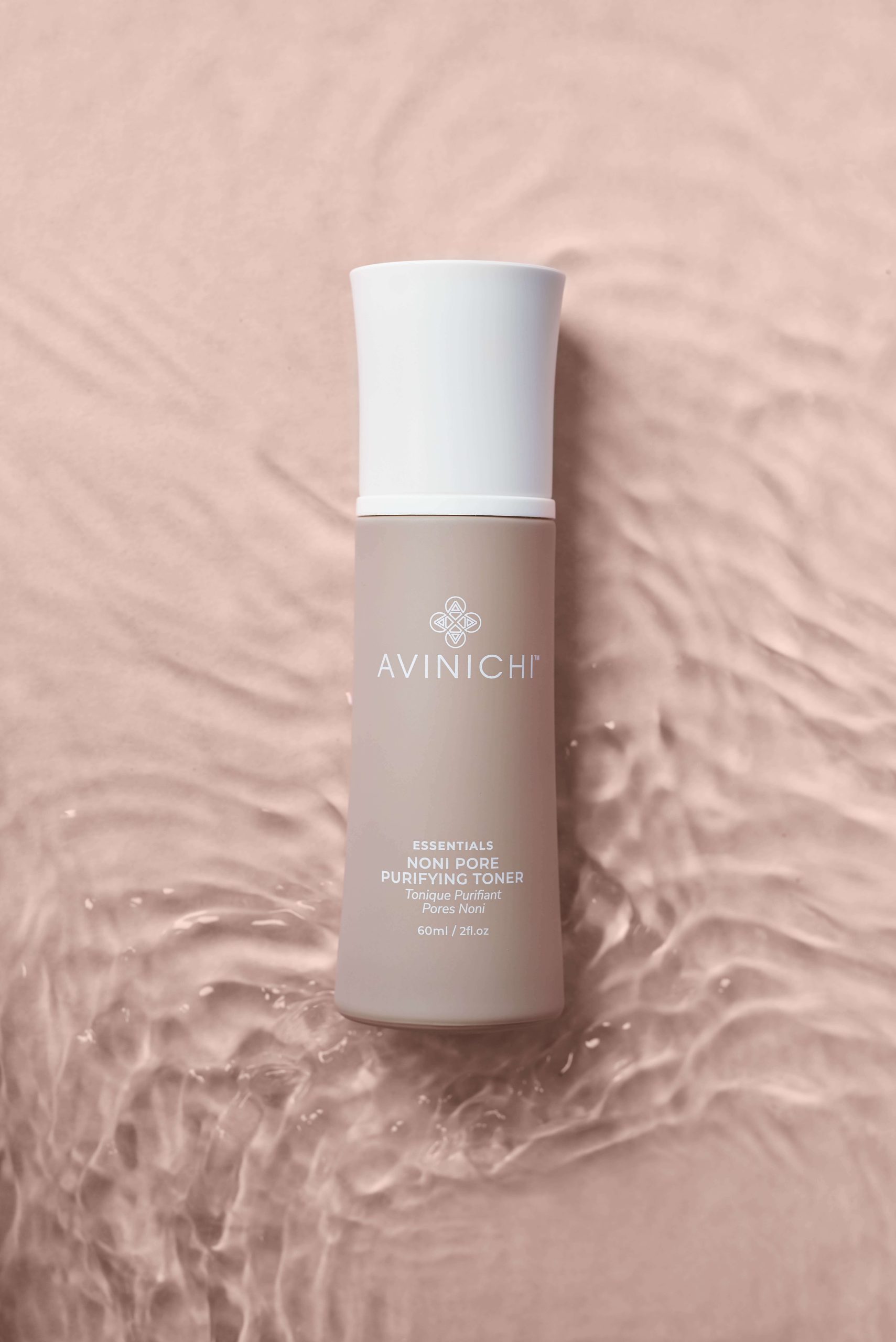
As we discussed earlier, your skin microbiome helps to regulate skin pH. In normal circumstances, it does a great job of this. However, when faced with all of the pH-disrupting skincare products out there, like powerful cleansers and exfoliators, your skin microbiome may need some extra help.
Adding a toner, such as the Avinichi Noni Pore Purifying Toner, to your skincare routine can help maintain a balanced surface pH. This means that your skin microbiome won’t have to work quite so hard to do the same, enabling it to focus on doing what it needs to do to thrive.
Don’t Over-Exfoliate
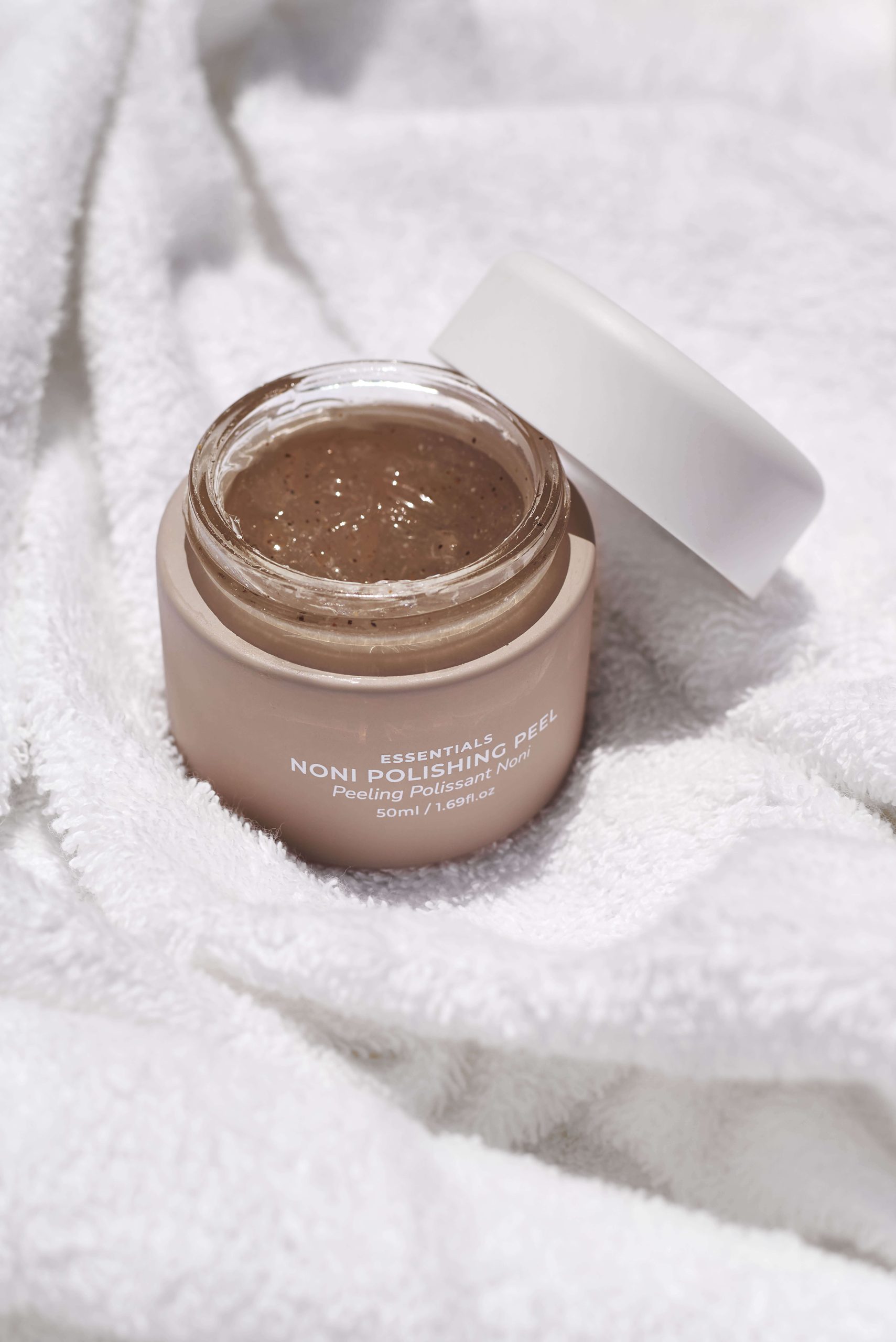
Although exfoliation is an essential part of skincare, over-exfoliating —when you either exfoliate too often or use an exfoliator that’s too potent for your skin —can severely disrupt your skin microbiome. It strips away beneficial bacteria while also harming your skin barrier, which is directly linked to your skin microbiome.
Over-exfoliating is a surprisingly easy mistake to make. To avoid doing this, make sure that you keep your skin type in mind when deciding how often to exfoliate. If you have oily or combination skin, you’ll likely need to exfoliate two or three times a week, but try not to go over this. Meanwhile, dry skin should be exfoliated once or twice a week, and sensitive skin even less.
Just like when choosing a cleanser, make sure that your exfoliator is gentle as well. Avinichi’s Noni Polishing Peel, which exfoliates with a blend of mandelic acid, bamboo powder, and walnut shell powder, would be a great choice for all skin types.
Consider Using Prebiotic Skincare Ingredients
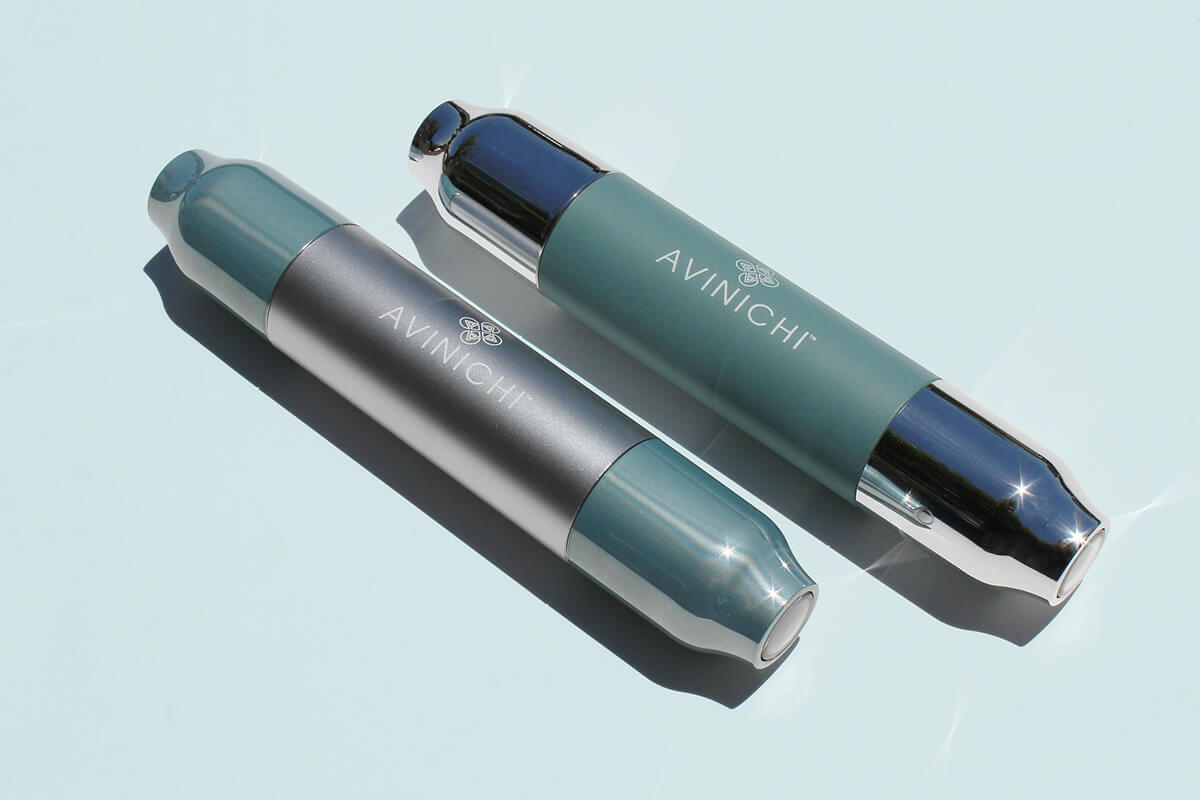
You’ve probably heard of probiotic skincare. With the skin microbiome now in the spotlight, probiotic skincare products promise to add beneficial bacteria to the skin. Unfortunately, the majority fail to deliver, simply because it isn’t yet possible to incorporate live bacteria into skincare.
Prebiotics, on the other hand, are a different story. Prebiotics feed the beneficial bacteria that are already residing on your skin, allowing those strains to thrive and outcompete any bad bacteria. Oat-derived ingredients, like the beta-glucans found in the Beta Fine Line Surface Filler, work well as prebiotics. Plat extracts are great for this too, and you’ll find plenty of them in every Avinichi skincare product!
Keep Your Skin Consistently Hydrated
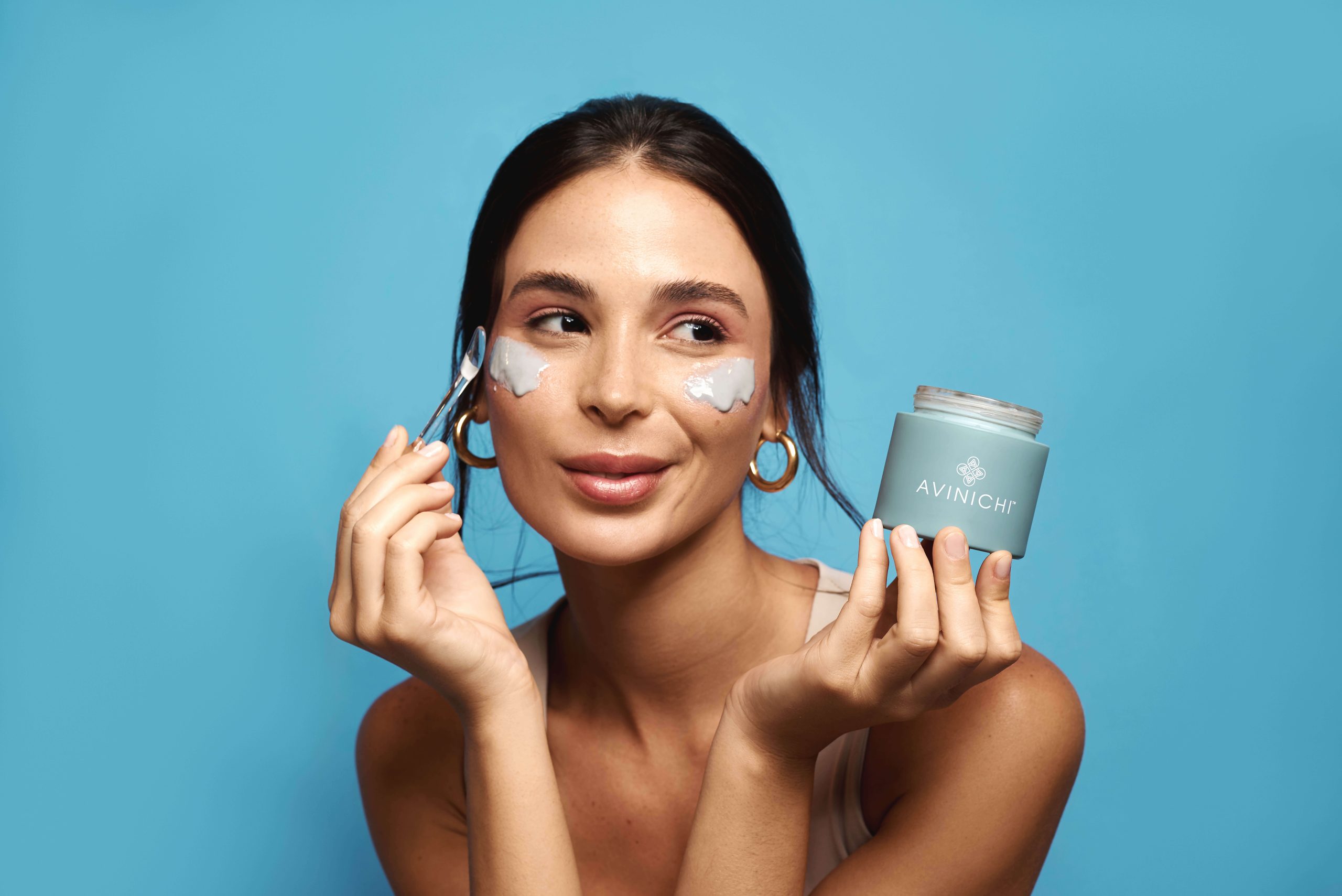
It’s common knowledge that keeping your skin hydrated helps to contribute to a brighter and bouncier complexion. The more hydrated your skin is, the more it will glow!
However, did you know that hydration is crucial for your skin microbiome too? Hydrated skin is less hospitable to bad bacteria, which allows beneficial bacteria to flourish.
If your skin could do with some extra moisture, check out the Hydrating Antioxidant Serum from Avinichi’s Phyto Thermal Collection. It brings together several different hydrating ingredients, ensuring that the skin feels deeply quenched after each application.
Spend Time in Nature
While using the right skincare products (and avoiding the wrong ones) will go a long way in boosting your skin microbiome, several of your lifestyle choices play into this too. The amount of time that you spend outside, for example, will affect how diverse your skin microbiome is.
Research shows that spending time in nature can significantly boost the diversity of the skin microbiome. Why is this? It all comes down to soil, which hosts one of the most diverse ecosystems on the planet. Physically touching soil and giving your skin access to some of those microorganisms can really help to improve the health of your skin microbiome.
Feed Your Gut Microbiome
Did you know that your gut microbiome and your skin microbiome, although two very distinct ecosystems, are closely connected? An unhealthy gut microbiome will affect your skin microbiome, and vice versa.
So, to keep your skin microbiome optimized, make sure that your gut microbiome is getting plenty of attention. Eat plenty of fiber, as well as prebiotic foods, such as oats, onions, garlic, and asparagus. Probiotics, which come from fermented foods, are great for the gut too.
Avoid Hot Water
While a hot shower may feel soothing after a long day, it’s not doing your skin microbiome any favors. Hot water interferes with the balance of the microorganisms that make up your skin microbiome, killing off beneficial bacteria. It also melts away the sebum on your skin, which acts as a form of protection.
Whether you’re showering or just cleansing your face, only allow lukewarm or cool water to touch your skin. This will help to keep your microbiome functioning as it should.
Learn How to De-Stress
Your skin microbiome is heavily influenced by stress. Although scientists aren’t quite sure exactly what this connection entails, studies show that stress suppresses beneficial bacteria while also encouraging the growth of certain species of bad bacteria. This tends to result in an imbalanced skin pH, an increase in breakouts, and an increase in redness.
Of course, stress affects the skin in other ways too. It accelerates the development of fine lines and wrinkles, contributes to dehydration, and can exacerbate sensitivities. Learning how to lower your stress levels whenever they start to rise can be extremely beneficial to your skin in a number of ways, and your mental health will appreciate it as well! There are so many different stress-busting techniques out there that you could try, from listening to soothing music to exercising to spending time in nature. Experiment with a few, decide what works for you, and enjoy better skin as a result!
Get Serious About Sun Protection
Last but not least, let’s talk about UV rays. You’re probably already aware of how they’re bad news for your skin. They’re infamous for causing wrinkles, dark spots, and even skin cancer. However, another way in which they impact your complexion is by altering the composition and diversity of the bacteria in your skin microbiome.
To keep your skin looking and feeling healthy, make sure that you take sun protection seriously. Any exposed areas of skin should always be covered with a broad-spectrum SPF 30 formula, even in the winter!
Summary
The skin microbiome has been garnering lots of attention lately, and rightly so. As you now know, it’s a vital component of skin health, which is why it’s important to keep that delicate ecosystem well-balanced. If you’ve been struggling to get to the root of the skin concerns that you’re dealing with, spend some time giving your skin microbiome some extra care, and you’ll likely see some big improvements in your complexion as a result.

